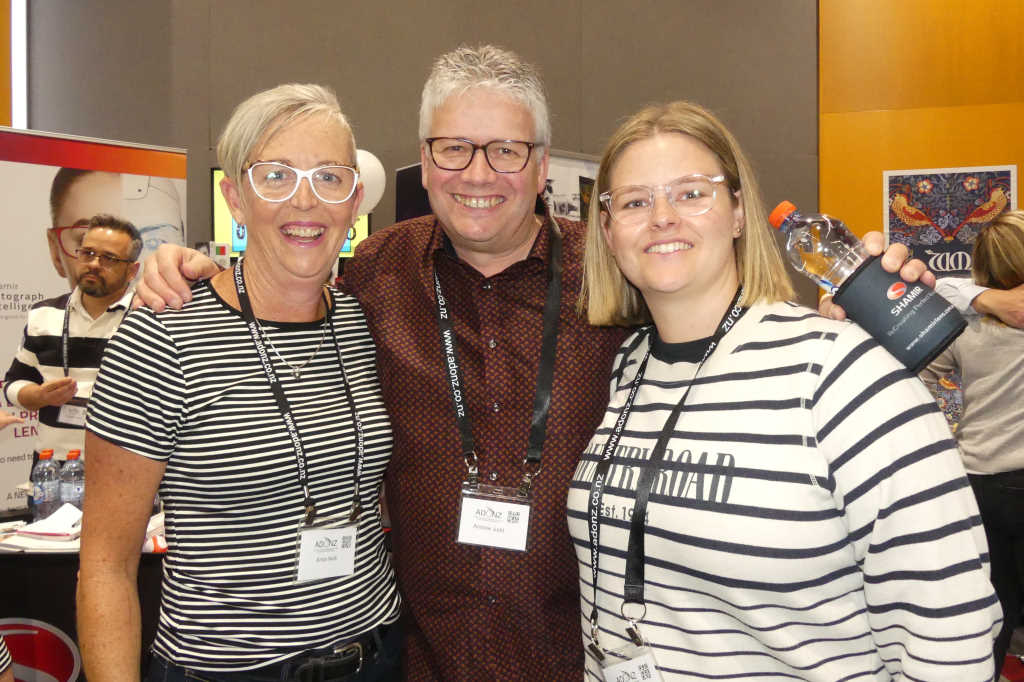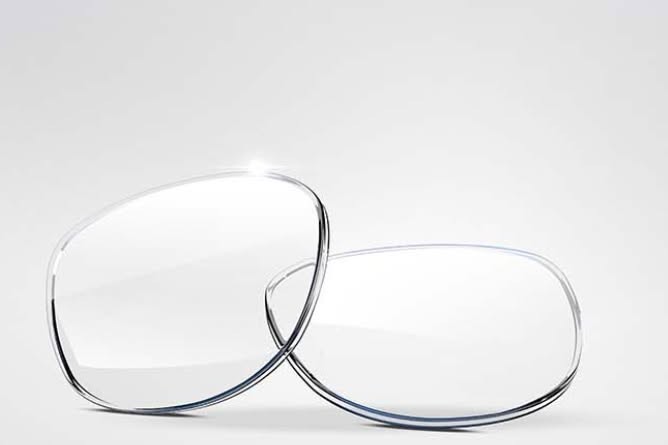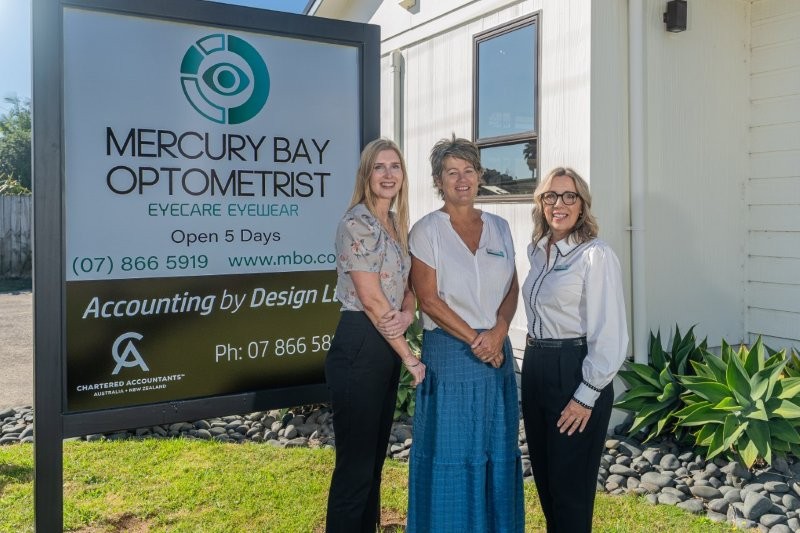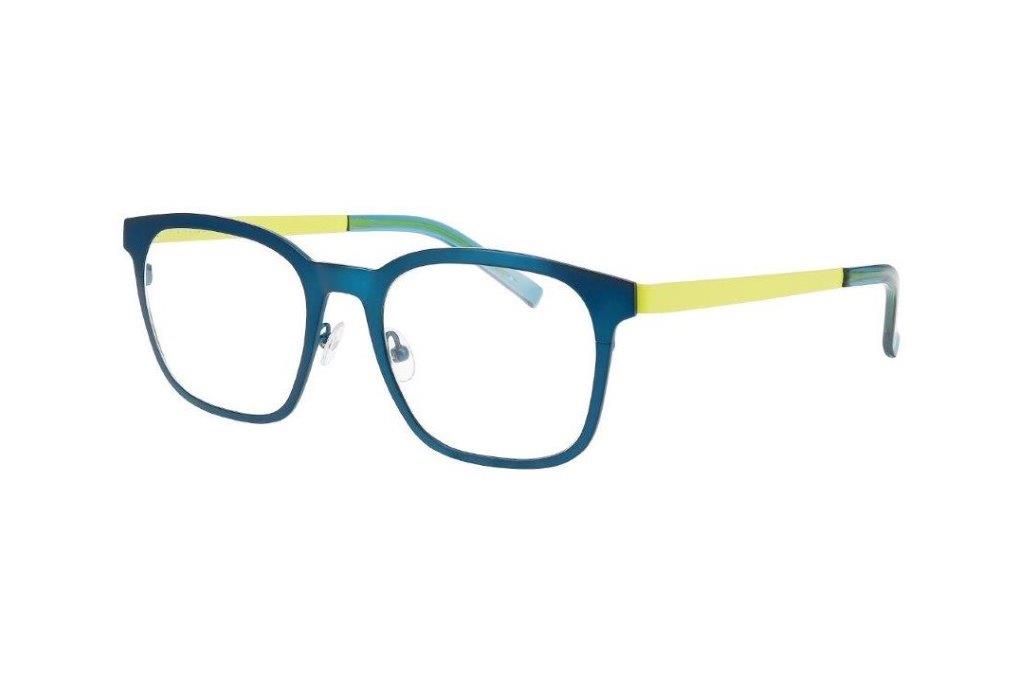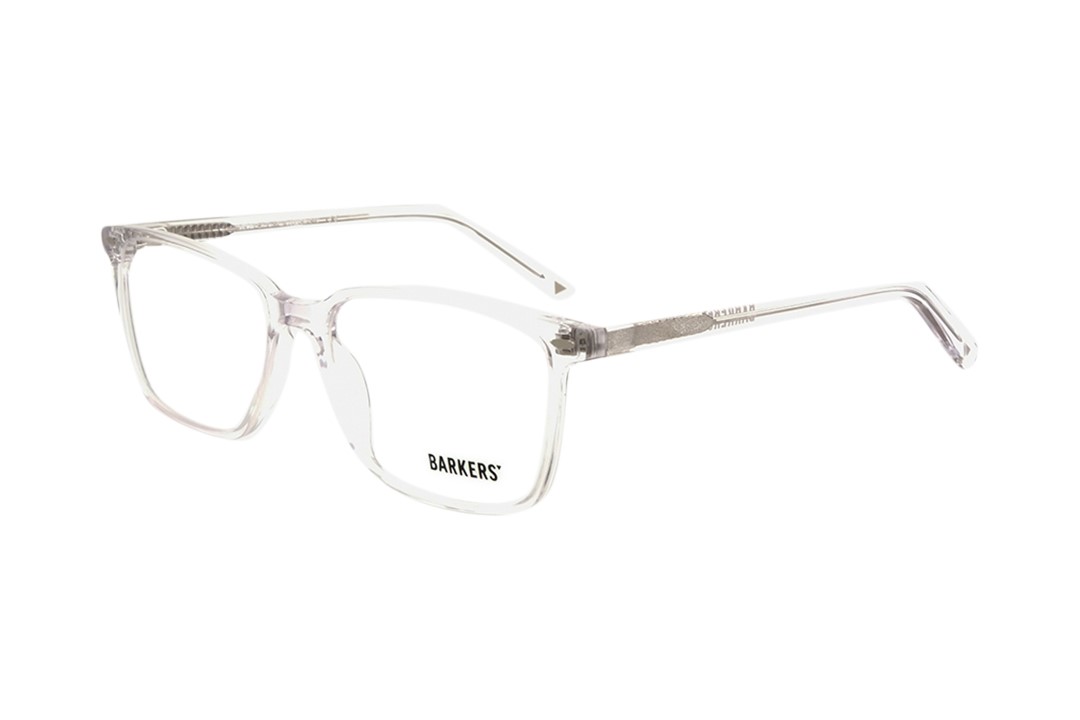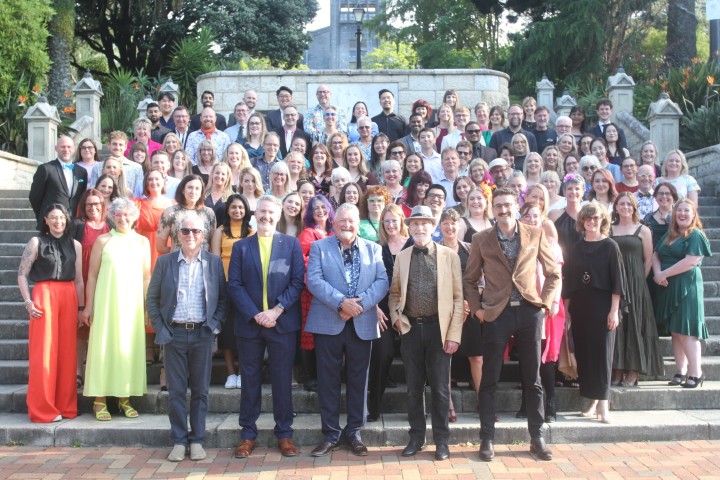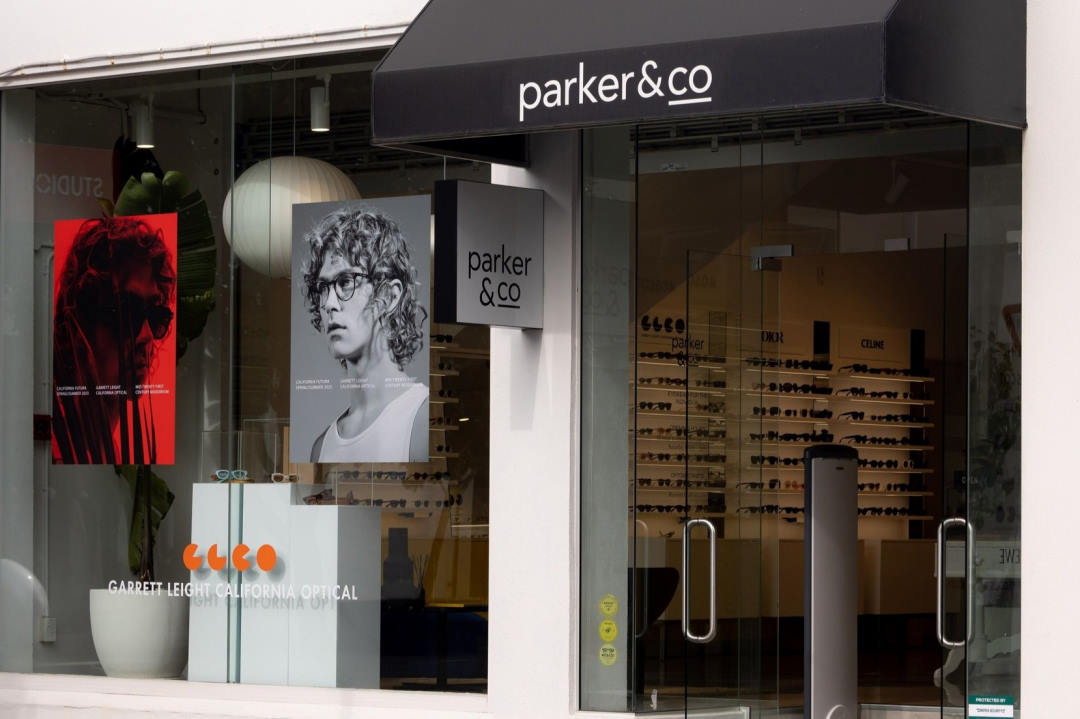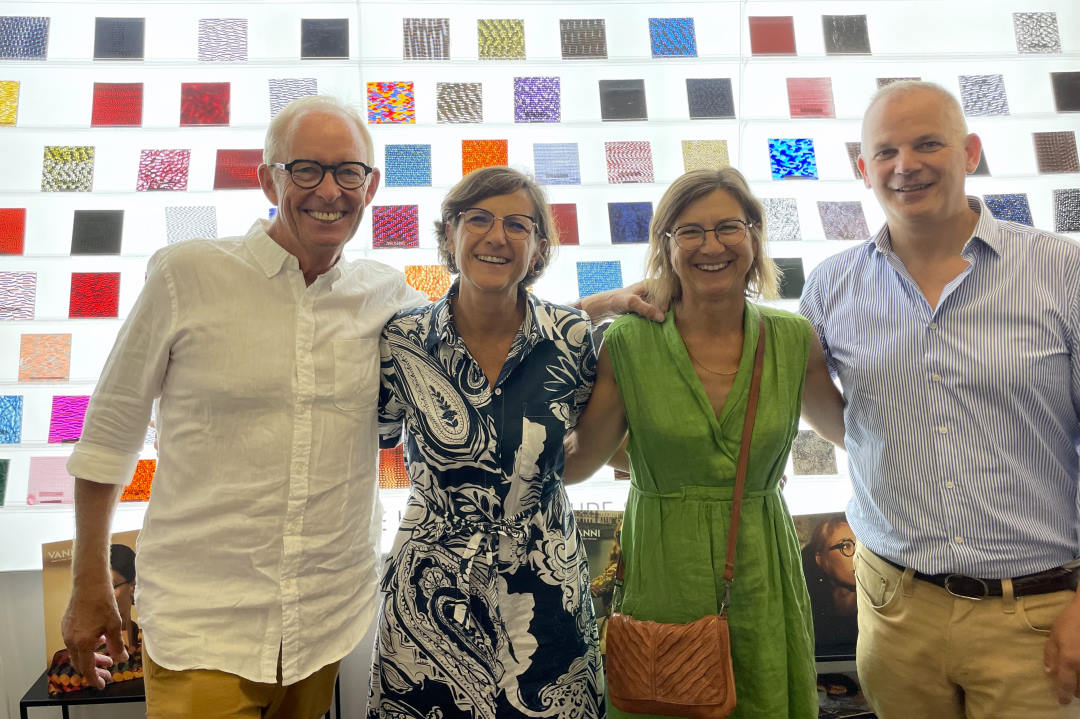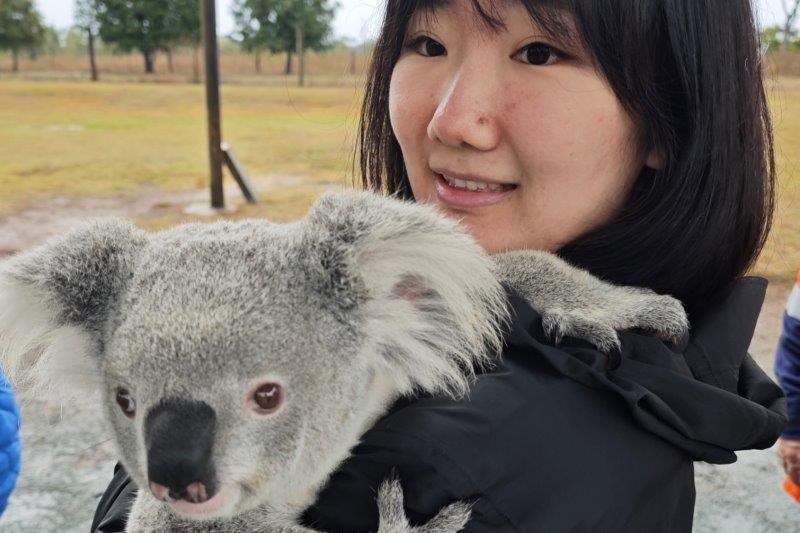Celebrating Art Deco past and dispensing future
The 2019 Association of Dispensing Opticians New Zealand (ADONZ) annual conference was a superb celebration of the profession, attracting a near record number of attendees. Packed with education, networking and fun, it was most definitely the highlight of the dispensing profession’s year.
Changing world of optics
Change was a recurring theme at the conference. Guest of honour Clive Marchant, president of the Association of British Dispensing Opticians (ABDO), spoke about the importance of embracing change in order to stay relevant and Fiona Anderson, president International Opticians Association (IOA), continued this thread in her lecture The future of the optical industry. Anderson discussed how the patient journey is changing with the technology advancement, tele medicine and DIY optical tools now available. To survive in this rapidly changing world, she encouraged her fellow DOs to leverage new technology and expand services offered by DOs. People buy people, she said, and the internet can’t replace the value of communicating with a highly skilled professional offering specialist service.
Jayesh Chouhan, chair of the Optometrist Dispensing Opticians Board (ODOB), asked DOs what they would like to do if there were no scope boundaries and encouraged everyone to submit in the upcoming consultation on scope of practice. Some of the suggestions were for DOs to fit CLs and do refraction to raise scope of practice to UK standards, support optometrists with therapeutics, carry out minor triaging and have the ability to refer patients to ophthalmologists and other health providers.
Concerns were raised over previous lack of progress regarding scope change and concerning the Therapeutics Bill which will require ministerial sign off before public consultation opens. ODOB registrar Lindsey Pine addressed concerns by saying that as the Government is looking at growth and interdisciplinary practice in the health sector, the time for change is now. For successful submissions, she recommended DOs to start with areas representing an unmet public need and focusing on how DOs can help reduce barriers for the public to access healthcare.
Pine also spoke on the importance of self care and the necessity to take time out in our busy schedules in order to recharge. Under the Health Practitioners Competence Assurance Act (HPCA), DOs are obliged to adhere to standards, including reporting concerns for colleagues’ fitness to practice to the ODOB. Pine stressed that the board’s intention is to keep struggling individuals practicing if possible, suspension would be a last resort.
Hawkes Bay clinical pearls
With the conference being held in Napier, ADONZ had invited local eye health practitioners to share some of their specialities and insights. Ophthalmologist Dr Alex Buller gave a talk on diagnosis, management and treatment options for glaucoma. Dr Buller was fundamental to the set-up of Hawkes Bay District Health Board’s (DHB) nurse-led glaucoma clinic, which was covered by clinical nurse specialist Jane Hawthorn, see pX.
Dr Sophie Buller covered diagnosis and treatment of dry eye, a condition dispensers see often, judging by the number of questions she received. Dr Buller said, in her experience, patients suffering from dry eye disease often find it difficult to describe. Terms they may use are: dry, gritty, stinging, burning, sore, tired or that they are more aware of their eyes or feel like there is a foreign object in the eye. As dry eye is often the result of multiple aetiologies, Dr Buller said it’s vital to tackle all the contributing factors you can identify at once.
For all symptoms of dry eye, Dr Buller prescribes preservative free drops (min 4 times/day plus pm), night ointment (Vita-Pos or Parin-Pos, if elderly, alternate night/eye to minimise fall risk), warm compresses (5-10min), Omega-3 supplements for three months minimum (krill oil 945mg/day eicosapentaenoic acid (EPA), + 510mg/day docosahexaenoic acid (DHA) in phospholipid form, important to consult GP before starting supplements) and tea tree oil face wash and shampoo. Dr Buller also encouraged DOs to do a drug history, investigate potential environmental modifications required, educate the patient and encourage blinking. In addition, treatments targeting the specific cause of dry eye; topical steroids, oral antibiotics, serum eye drops, chromoglycate, MGD treatment or chronic pain medication will be required, she said.
Orthoptist Sally-Ann Herring discussed the impact of traumatic brain injury (TBI) and stroke on vision. “Vision is not just about the eyes,” she said. Herring said vision screening in stroke patients is variable around the country, which is problematic as the lack of vision assessment can delay rehab and have long term effects on the patient’s recovery and daily life. Herring said she’d like to see the stroke acronym amended to include V for vision (VFAST: vision, face, arm, speech and take action). Herring also recommended using the orthoptist referral form questions as a guideline when doing a vision assessment of a stroke or TBI patient.
Niall McCormack joined the conference with an update on myopia control. McCormack said several studies show the environment is the biggest contributing factor to myopia progression, with the main issue being the amount of screen time a child has at home. McCormack recommends 90 minutes off screen before bedtime, take regular breaks from close-up work / screen time and to use the Harmon distance when reading or doing close up work (the Harmon distance is measured by placing a closed fist under the chin and then holding a book at the tip of the elbow). McCormack also discussed concussion in children and said the visual effects are often underrated, with convergence insufficiencies being the most common visual finding.
Behavioural optometrist Mark Eagle spoke philosophically about Irlen syndrome and stress. Linking back to Herring’s talk, Eagle said it’s important to recognise that visual issues may be multi-factorial, and that Irlen lenses can be one piece of the solution. It’s important that clinicians understand that a child’s environment may be stressful and that some of the physiological responses to stress, such as pupil dilation (reduces focal depth of field), reduced accommodation and cognition may be relieved with tinted Irlen lenses.
Dispensing in practice
Claire Fitzgerald and Jillian Applegate from Blind & Low Vision NZ (BLVNZ), former The Blind Foundation, shared some patients’ experiences at time of diagnosis. The response to grief naturally varies, but feelings of frustration, isolation and depression are common, they said, stressing the importance of acknowledging that parents/family are affected too. BLVNZ offers library services, support with transport, daily living skills training, counselling, technology, employment readiness help, and more. The charity also offers specialist services for children, deaf/blind, Māori and Pacific Island patients. To refer, https://blindlowvision.org.nz/contact/make-a-referral/
No ADONZ conference is complete without the Australasian College of Optical Dispensing (ACOD) directors James Gibbins and Chedy Kalach. James Gibbins emphasised a DO’s crucial responsibility to perform a final quality control check in accordance with national standards before spectacles are released to a patient. Kalach demonstrated various visual field (VF) tests and discussed the link between optic nerve lesions and VF loss. Using spectacles and prisms, DOs can help reduce the impact of a patient’s VF loss, which is particularly important for driving standards (New Zealand Transport Agency’s minimum standard for all license classes is a binocular horizontal VF of 140˚). Kalach advised being mindful when dispensing high plus powers as they reduce the VF, but said, most importantly, communicating with and managing the expectations of this patient group is paramount.
Summarising the conference beautifully, Stephen Caunter addressed the ever-important topic of adult learning. How do we learn and when do we learn best? Caunter said context is key to learning, stressing that adults need to understand why they are learning in order to become successful learners. The plentiful context provided over the weekend must surely have led to some successful learning indeed!
Also plentiful were the glorious feather boas, pearls, dazzling outfits on display at Saturday’s Speak Easy gala dinner. Complete with delicious three course dinner, sea views and live band, this Prohibition-era event mirrored the Art Deco landscape and certainly provided a fitting finale to the abundant learning and networking in Napier.
Next year’s ADONZ conference will be hosted in Queenstown, 30 October to 1 November 2020.










